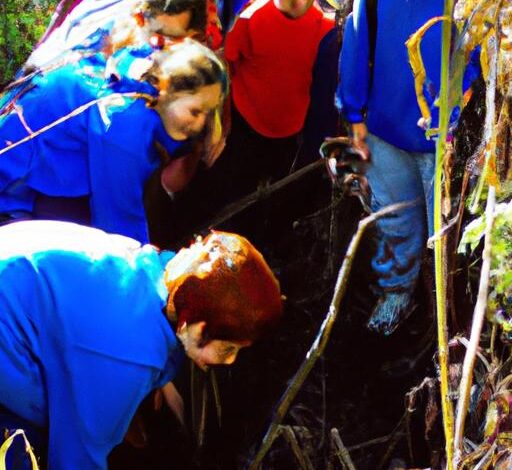Kid Digs Underground Wires to Explore: Video Gore and the Importance of Safety

Introduction
Have you ever stumbled upon those captivating videos where kids dig underground wires, uncovering hidden mysteries and sharing their explorations with the world? It’s undeniable that such content has gained significant popularity online. However, behind the allure lies a grave concern for the safety of these young adventurers. In this article, we delve into the risks associated with kids digging underground wires, emphasize the importance of education and awareness, and offer safe alternatives for exploration.
Understanding the Risks and Dangers
Digging underground wires may seem like an exciting adventure, but it comes with serious risks. The foremost danger is the potential for electrocution. Untrained children digging into the ground without proper knowledge of electrical currents is a recipe for disaster. Moreover, these activities can lead to infrastructure damage, disrupting essential services and posing a threat to public safety. Additionally, there are legal consequences for trespassing and damaging public or private property. It is crucial to recognize these risks and take appropriate measures to ensure the safety of our children.
Importance of Education and Awareness
To address the risks associated with kids digging underground wires, education and awareness are paramount. As responsible adults, we need to educate children about the potential dangers involved in such activities. By explaining the hazards of electrical currents, we can instill a sense of caution and responsibility. Teaching them to respect public and private property will help them understand the importance of avoiding unauthorized digging. By fostering awareness, we can create a safer environment for our children and the community as a whole.
Safe Alternatives for Exploration
While curiosity and exploration are vital for a child’s development, it is essential to channel them in safe and responsible ways. Instead of digging underground wires, encourage children to engage in activities that provide similar thrills without the associated risks. Nature hikes, treasure hunts, or even archaeological digs in controlled environments can satisfy their curiosity and teach them valuable lessons about the world around them. By offering safe alternatives, we can nurture their sense of adventure while ensuring their well-being.
Responsible Parenting and Supervision
As parents and guardians, we play a crucial role in ensuring the safety of our children. Supervision is key to preventing them from engaging in hazardous activities like digging underground wires. By actively participating in their explorations, we can guide them towards safer options and help them understand the potential consequences of their actions. Open communication, setting boundaries, and providing alternative outlets for their curiosity are essential elements of responsible parenting. Together, we can ensure our children’s safety while fostering their sense of wonder and discovery.
Conclusion
In the age of viral videos and digital exploration, it is crucial to prioritize the safety of our children. Although the allure of digging underground wires may seem appealing, the risks involved are far too great. By educating children about the potential dangers and promoting safer alternatives for exploration, we can protect them from harm while nurturing their curiosity and sense of adventure. Remember, responsible parenting and supervision are vital in guiding our children towards safe and educational experiences. Let’s create an environment where their explorations can flourish without compromising their well-being.
Remember, safety should always be the priority. Let’s embrace the wonders of exploration while ensuring our children’s welfare. Together, we can create a world where curiosity thrives in a safe and responsible manner.
To learn more about creating a safe environment for your family, visit HNC Premium House. They offer valuable insights and resources for responsible parenting and child safety.
Note: This article is for informational purposes only and does not constitute professional advice. Always consult with relevant experts or authorities for specific guidance.







